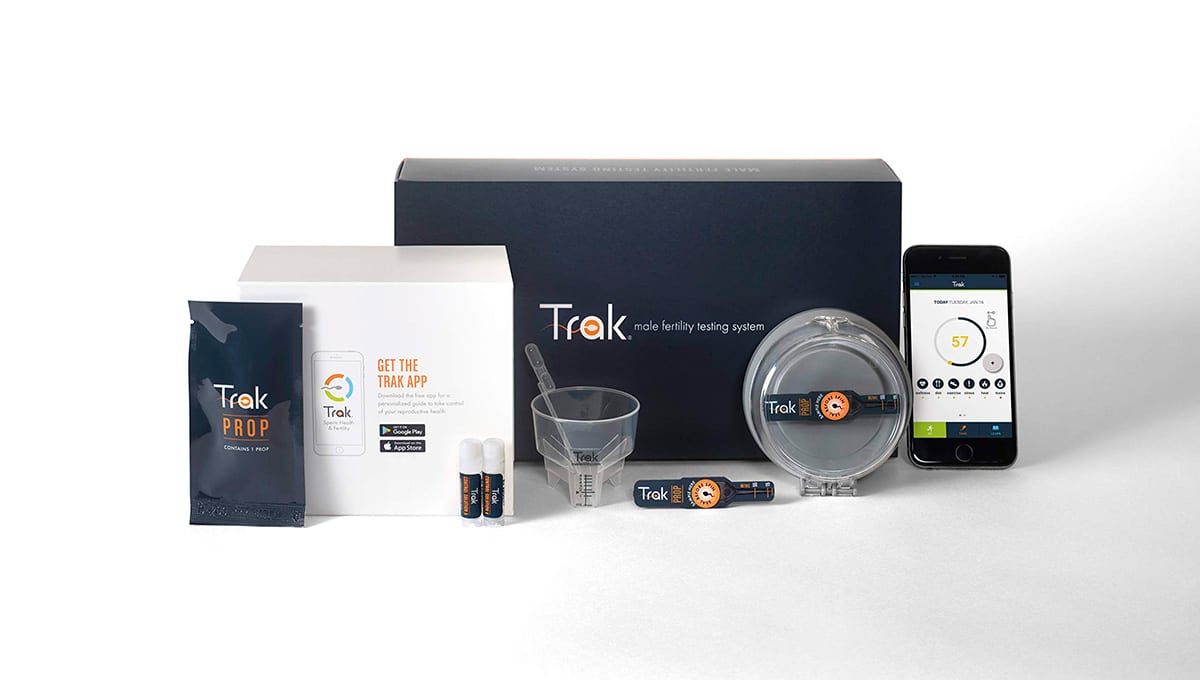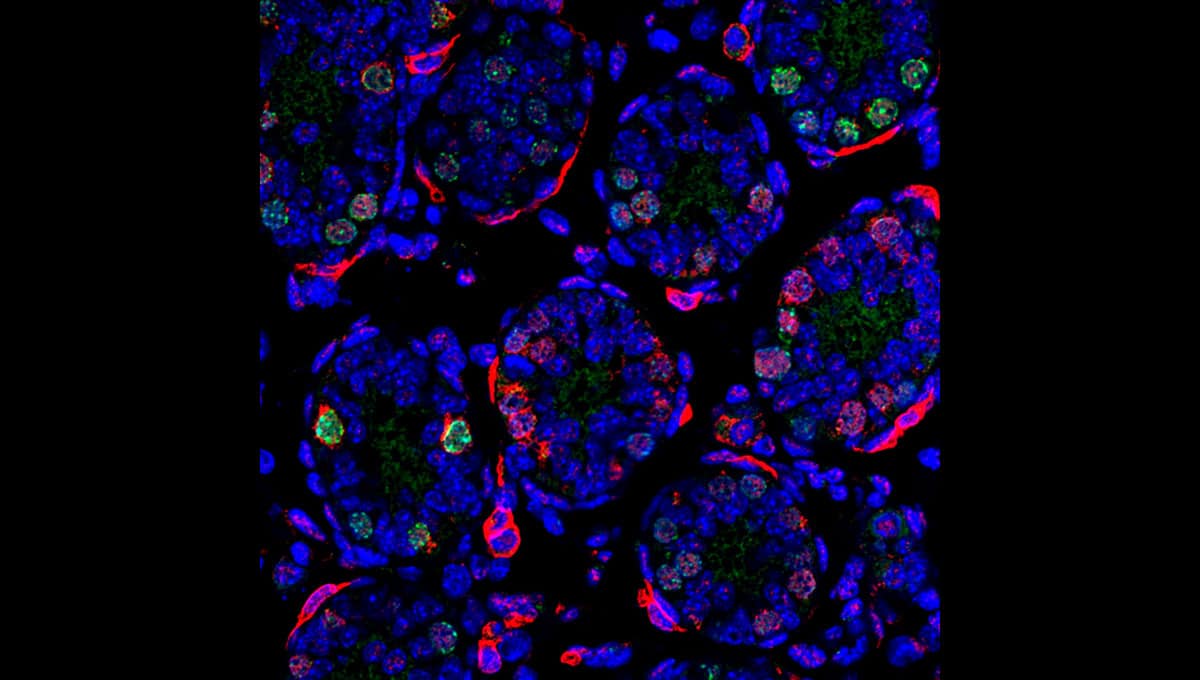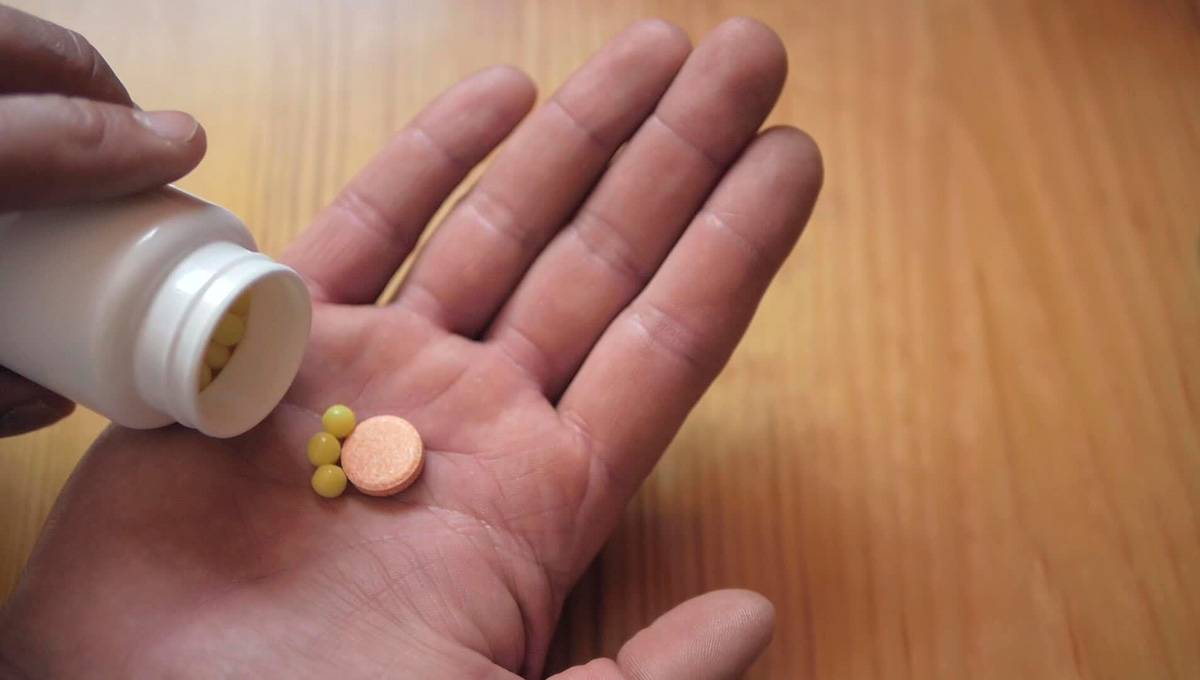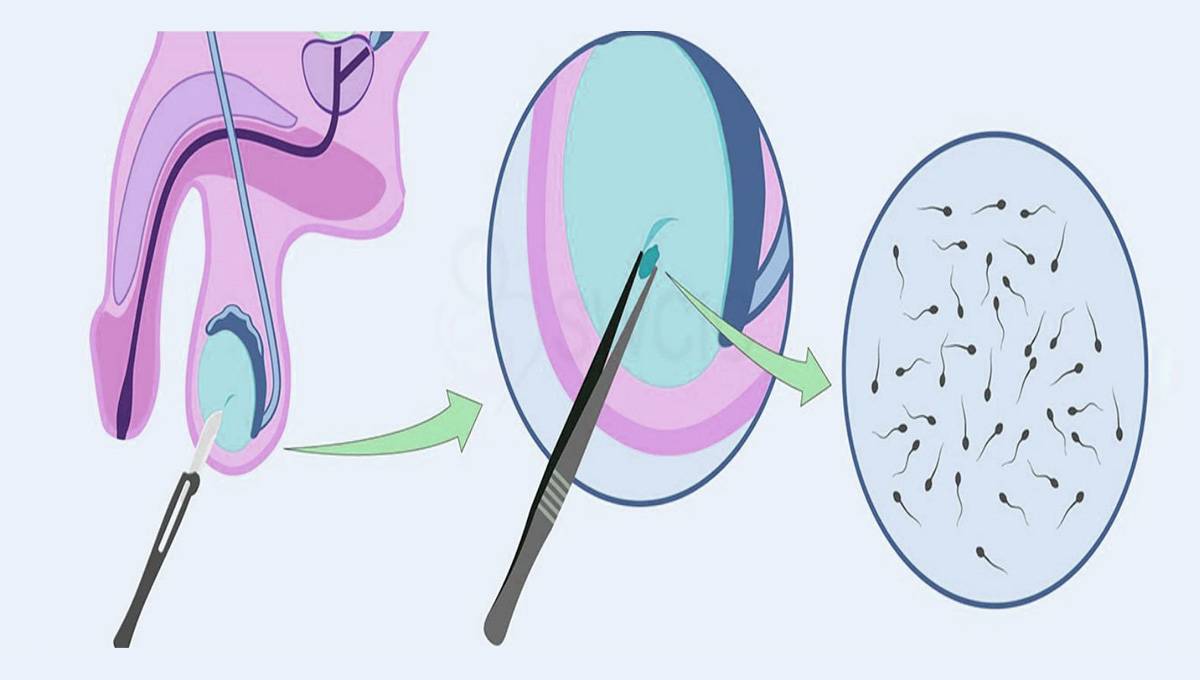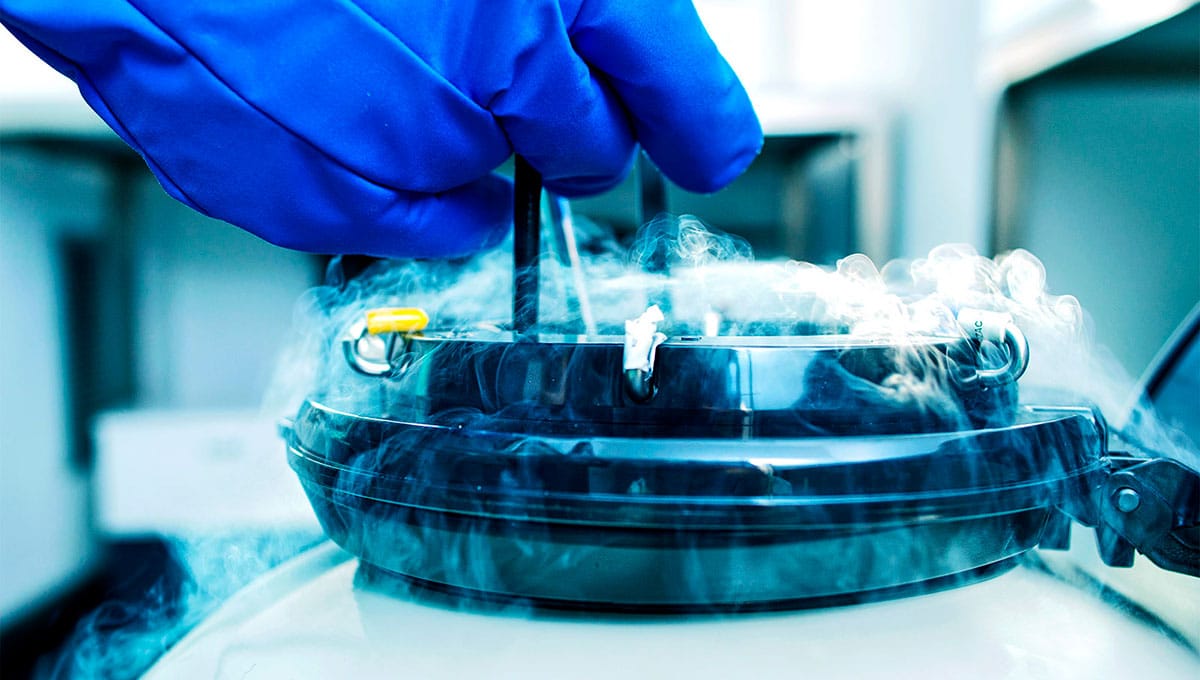Trak is a clever piece of equipment which allows you to test your sperm count and semen volume at home. It does this by testing your semen in a small machine and it measures your sperm count in a matter of minutes.
The Process
The Trak Male Fertility Testing System contains all of the apparatus you need (even batteries).
First, you need to use the Trak volume cup to collect your semen sample. This has markings along the side so that you can read the measurement for your semen volume. This is the first indicator of your fertility because lower semen volumes, or hypospermia, can result in problems conceiving.
The next step is to load this sample into the disposable cartridge (called a “prop”). You can seal this using a small sticker provided in the pack. Then you need to load this into the “engine”. This is the machine where the magic happens.
It spins your sample around and uses centrifugal force to isolate the sperm cells. This allows the equipment to count the number of sperm cells present. The machine takes six minutes before it is ready for you to read your sperm count results.
Sperm test results
Trak displays your results on a gauge, and helpfully grades them on a scale for you. You can see whether your sperm count is “low”, “moderate” or “optimal”. This is better than some other home fertility tests which only give “yes” or “no” outcome to your fertility.
www.amitamin.com/en/fertilsan-m New life deserves the best possible start!We provide the essential building blocks for this.
However, one major drawback is that Trak only focuses on sperm count. It does not give any information about sperm motility (movement) or morphology (appearance). These are also important parameters for male fertility.
Accuracy
Accuracy is always a concern with home testing kits. However Trak is more accurate than most as it has been approved by the US Food and Drug Administration. This means that it has been validated against the gold standard lab method.
Furthermore unlike some other home testing kits, Trak uses the correct internationally recognised cut off range for low sperm count (oligozoospermia) which is 15 million sperm per ml of semen.
For semen volume it grades hypospermia as being 1.5ml or less. These values are in line with World Health Organisation guidelines, so you can trust the results you get from Trak.
Personalised advice
Another positive feature about Trak is that it offers fertility advice which is specifically for you. It asks you a number of questions about your lifestyle through the Trak app (available on Google Play and the Apple App store) and an online quiz (TrakFertility.com/Quiz).
Based on this information, it gives you personalized recommendations for how you can improve your fertility. It also allows you to enter your sperm results so that you can monitor these over time.
This can be a good incentive to improve your lifestyle for the purpose of boosting your fertility, and the Trak app can help you take practical steps towards this. By following Trak”s guidelines and their recommendations for a few months, you can see real changes in your sperm quality.
This is because sperm cells take around three months to mature, therefore the Trak testing kits can be useful to help you monitor these changes.
Pricing
The Trak system comes in two test kit options, both of which include the Trak engine. The 4 test kit costs $199.99 and the 6 test kit costs $224.99. You also have the option to buy a refill kit for $49.99 which does not include the Trak engine.
This is expensive given that fertility centres charge approximately $160 – $200 for asemen analysis conducted professionally in a laboratory.These semen analyses are more thorough than Trak”s results, because they test all of the features of the sperm cells (sperm count, motility and morphology). Furthermore, they provide an accurate numerical value for your sperm parameters, whereas Trak only approximates sperm count on its three-tiered gauge.
Additionally, you receive medical advice from a professional at a fertility centre. This consultation is usuallyincluded in the cost of the fertility test or may require a small additional charge. This consultation would be truly tailored to your health and medical history, and it would be more reliable than advice from Trak. Although Trak”s recommendations are useful, they will never be as personalized as a medical consultation.
However it is important to consider that the Trak test kits can be used 4 or 6 times, depending on the kit option you choose. Therefore you can take the test at intervals, for example monthly, to see how your sperm count changes.
Trak is cheaper than a fertility clinic if you are interested in solely tracking your sperm count and semen volume over time, as opposed to finding out detailed information about your sperm on a single occasion.
Verdict
Having a sperm test at a fertility clinic is undeniably awkward, and Trak makes the process much easier. Being able to test your sperm in the comfort of your own home and receive the results straightaway is incredibly convenient. Men who would shudder at the thought of visiting a fertility clinic might be tempted to test their sperm for the first time using Trak.
Furthermore, the results you get using Trak are clear and easy to read. If you are only focused on improving your sperm count, the Trak measurements are sufficient and allow you to easily see whether your sperm quality is at an ideal level for conception.
Trak is also a good option for men who only have problems with sperm count or semen volume, but otherwise have good motility and morphology based on previous results from a fertility clinic. However the price tag is an issue, especially given that the results from a fertility clinic would cost around the same but would be much more comprehensive.
Overall Trak is an accurate and user-friendly way to get an insight into your sperm. It is by no means a replacement for a medical fertility test, but if your main priorities are ease and comfort, then this is a good option for you.
Our recommendation:
Use Trak to track your sperm count after you have had a comprehensive semen analysis done in a laboratory.

Dr. Jones is an experienced consultant in assisted reproduction.
He has worked as a Fertility specialist at Kingston Hospital Assisted Conception and nearly 10 years experience of working in Obstetrics and Gynaecology across hospitals in the UK.
He completed his Masters in Assisted Reproduction Technology and then his PhD, from Imperial College London. Dr. Jones main areas of interest are Single Embryo Transfer, Endometriosis, PCOS and Implantation failure in IVF patients. He is a member of the British Fertility Society and an associate member of the Royal College of Obstetrics and Gynaecology.
